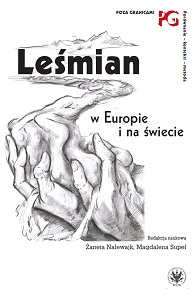Leśmianowskie dziwożony oraz ich słowiańskie konteksty (literackie i nie tylko)
Leśmian’s dziwożonas and their Slavic contexts (literary and not only)
Author(s): Żaneta Nalewajk
Subject(s): Cultural history, Studies of Literature, Polish Literature, Philology
Published by: Wydawnictwa Uniwersytetu Warszawskiego
Keywords: Bolesław Leśmian; dziwożona; Slavic female demons; Polish literature; Czech literature; Russian literature
Summary/Abstract: Among the literary female characters to be found in Bolesław Leśmian’s writing, there are dziwożonas – swamp or forest demons from the Slavic mythology, known as malicious and dangerous creatures that kidnapped babies just after they were born and replaced them with her own children. They were often portrayed as wild women with long, straight hair and breasts so huge that they could use them to wash their clothes. A survey of selected literary texts from the 19th and the beginning of the 20th century by Polish (Seweryn Goszczyński, Michał Bałucki, Miron [Aleksander Michaux], Maria Konopnicka, Kazimierz Przerwa-Tetmajer, Wiktor Gomulicki), Czech (Karel Jaromír Erben) and Russian (Konstantin Balmont) writers, shows how the representation of such female demons evolved and provides a frame of reference for Bolesław Leśmian’s portrayal of analogous characters in his poem "Dziwożona" and in prose work Podlasiak from the volume entitled "Klechdy polskie".
Book: Leśmian w Europie i na świecie
- Page Range: 39-55
- Page Count: 17
- Publication Year: 2019
- Language: Polish
- Content File-PDF

